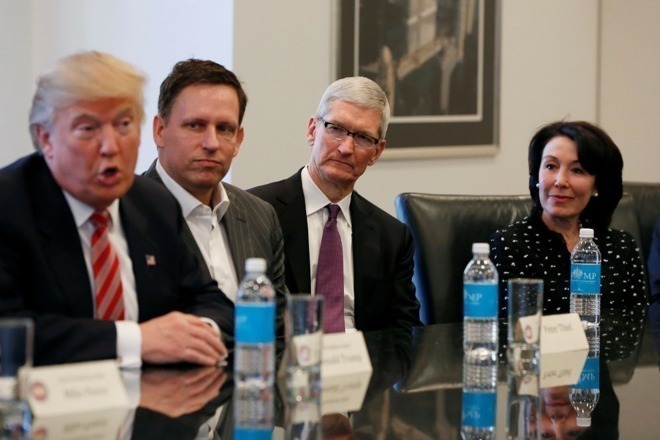The Trump administration's threat of more China tariffs could significantly raise the price of iPhones for consumers, with the iPhone XS family potentially costing between $60 and $160 more if Apple passes the extra cost on to its customers.
Following Monday's interview with President Donald Trump where the U.S. leader advises he intends to move ahead with tariffs on $200 billion of goods imported from China, if a summit with Chinese President Xi Jinping is less than fruitful, a note to investors penned by Katy Huberty at Morgan Stanley and seen by AppleInsider spells out some of the consequences of the tariffs if they do get applied.
The iPhone and many other Apple products assembled in China and imported to the United States has so far avoided being impacted by existing tariffs in the ongoing trade war between the two countries, but the administration has already signaled plans to apply similar tariffs on items not already on the import list. In the interview, Trump suggested a 10 percent tax could be applied to the iPhone and other goods, as "people could stand that very easily."
Production shifts unlikely
According to Huberty, Apple has one of the "most significant exposures to Chinese exports to the U.S.," due to its final assembly for most products located in China. While other firms could relocate factories outside of the country to escape the levy, China is "one of the only countries that can provide such a large and low-cost labor force with the expertise in manufacturing and tooling that is required" for the production of over 300 million devices a year, the analysts state, requiring upwards of 1 million workers in a single location.
Moving this base of operations out of China and into other areas of Asia "is largely inconceivable and would require heavy investment in robotics and automation," suggests analysts Katy Huberty, Elizabeth Elliott, Erik Woodring, and Kieran Kenny.
Shifting to the U.S. Is also out of the question for Apple, as the average assembly factory worker earns four times as much as their Chinese counterparts, and the population required for such high volume production would exceed that of Cincinnati, St. Louis, and Pittsburgh combined.
Apple also cannot ship almost-assembled products from China to another nearby country for the very last stage of assembly, as rules state the origin of a good is determined by the "last place in which it was substantially transformed into a new and distinct article of commerce." To get away with this, Apple would have to shift more of the assembly outside of the country to a level that satisfies the rules, requiring billions of dollars of investment over multiple years.
Taking the tariff option
Instead, Morgan Stanley believes the most realistic scenario will be Apple keeping its operations intact for the moment, and deal with the tariff head-on. Even doing this is considered as "value destructive" for Apple shareholders, as either Apple would have to eat the cost of the tax, reducing its profit per device, or pass it onto consumers.
According to estimates of $85 billion for U.S. Sales of the iPhone, iPad, Mac, and Apple Watch over the last 12 months, it is thought that about 32 percent of Apple's total cost of goods sold could be subjected to the import fee, which could range between 10 percent and 25 percent. If passed on to consumers, this could increase the cost of an iPhone XS by between $60 and $160, as an example, with similar increases for the iPhone XS Max and iPhone XR.
As main smartphone rival Samsung would be affected less by the tariffs, due to more than half of its manufacturing is performed in Vietnam and South Korea, prices for Samsung products should raise by a far lesser amount compared to Apple. Morgan Stanley suggests this means Apple "could face significant demand and unit headwinds" if the cost is passed on to consumers, as not all of its competitors will be impacted in the same way.
If Apple decided to consume the cost in its production and keep pricing for consumers static, it is suggested that demand will stay the same but the margins would "contract significantly." In this case, the full year 2019 earnings per share could be reduced by between $1 and $2.50, depending on the percentage of the tariff.
 Malcolm Owen
Malcolm Owen






-m.jpg)






 Charles Martin
Charles Martin


 Wesley Hilliard
Wesley Hilliard
 Stephen Silver
Stephen Silver
 William Gallagher
William Gallagher

 Marko Zivkovic
Marko Zivkovic









41 Comments
It's a lose-lose either way (from a dollar standpoint).
But it's a huge PR win if Apple eats the cost and keeps iPhones priced the same during this "Presidential Transition".
Perhaps the tariff is already baked into the price of the iPhones. Apple already saw it coming so they lowballed their forecast for the first quarter.